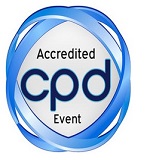
Laura Haynes
Professor and Scientific Adviser for Flu-2016
Center on Aging and Department of Immunology, UConn Health
USA
Biography
Dr. Laura Haynes received a Ph.D in Microbiology and Immunology from the University of Rochester School of Medicine and Dentistry in 1992 and a Bachelor of Science (1982) and Master of Science (1986) from the University of Miami. She was postdoctoral research fellow at the University of California, San Diego in Susan Swain’s lab from 1993 through 1996. She moved with Dr. Swain in 1996 to the Trudeau Institute as a postdoctoral research scientist and was a faculty member at the Trudeau Institute from 2004 until 2013. In July, 2013 she moved to the University of Connecticut Health Center. Her Laboratory focuses on how aging impacts the immune response to infection and how vaccine efficacy can be improved.
Research Interest
Dr. Laura Haynes research interest includes: The Impact of Aging on Immune Responses: Aging has dramatic impacts on all aspects of the immune response. Age-related changes result in significantly reduced immune responses, with lower antibody titers and reduced antibody affinity. My laboratory is interested in determining the specific immune cell types impacted by aging and the mechanisms responsible for these changes. We have focused on CD4 T cells, which are significantly impacted by aging, especially with regards to their ability to differentiate into follicular helper T cells and how this impacts protective antibody production. Using a mouse model of influenza infection, we have shown that these age-related declines in CD4 T cell function have a negative impact on immune responses to both infection and vaccination.
Examination of Vaccine Efficacy and Protection from Infection: Recent studies have determined that age-related defects in CD4 T cell responses are due to both intrinsic changes in CD4 T cell function as well as disruptions in the microenvironment and chemokine production in secondary lymphoid organs. This results in reduced follicular helper T cell function and poor antibody responses. Current studies are examining the mechanisms involved in this defect. We are also exploring how this defect may be overcome with more potent adjuvants or enhanced T cell priming. Our goal is to determine the most efficient way to enhance the efficacy of influenza vaccines for the elderly.

